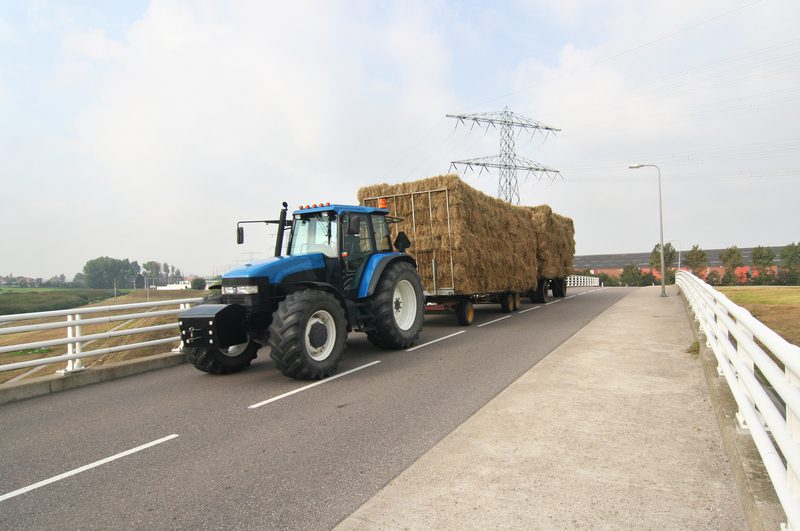TRENTON, NJ – Nobody likes getting stuck behind a large tractor when trying to get somewhere in the more rural parts of New Jersey. Single roads with solid yellow lines prevent passing in many instances, and often, State officials say drivers are losing their cool.
Now the New Jersey Department of Agriculture is asking drivers in New Jersey to have patience when it comes to being caught behind large farm equipment on the roads.
“With the harvest season beginning, there will be more occasions where drivers and farm vehicles share the road,” the Department of Agriculture said today.
According to The National Highway Traffic Safety Administration, 30 percent of the total vehicle miles traveled in 2019 were in rural areas, yet 45 percent of all traffic fatalities occurred on rural roads.
“When you see moving farm equipment on the road, it means they are already at work,” NJDA Secretary Douglas Fisher said. “We implore drivers to have patience when they encounter a farm vehicle. Roads in many rural areas are narrower, have obstructed sightlines, and farm equipment moves slowly and can be difficult to see around. It’s better to be a few minutes late and avoid a devastating collision.”
According to New Jersey Motor Vehicle statutes, a driver approaching a marked slow-moving vehicle from behind, must, before trying to pass, reduce their speed to that of the slow-moving vehicle, if there are fewer than two lanes of traffic flowing in the same direction.
“Registered farm vehicles may travel upon the state’s public highways a distance of 50 miles. Vehicles used exclusively for farm purposes or any vehicles like them being towed by another vehicle, must display a triangular, red and orange “slow moving vehicle” emblem on the rear of the vehicle,” the state said.
- Bridgewater Township Couple Arrested for Jewelry Theft at Senior Living Facility
- Maplewood Police Blotter: Here’s What’s Happening
- NJ Lottery CASH4LIFE Player Secures Lifelong $1K Weekly Prize
- Galloway Township Police Blotter: Here’s What’s Happening
- Road Rage Street Fight Caught on Video in Brick Township
